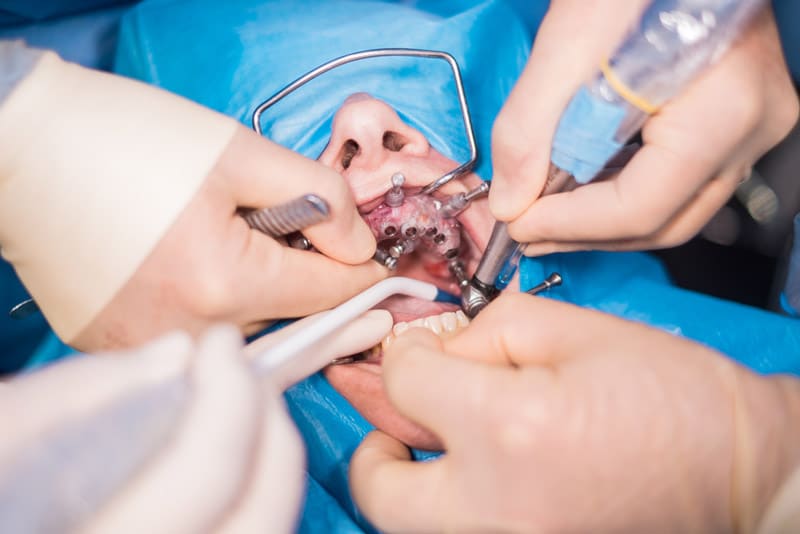In the field of dentistry, there are two distinct branches of surgery: Oral & Maxillofacial Surgery and normal Oral Surgery. While both involve surgical procedures in the oral cavity, there are significant differences between the two. In 2023, these differences have become even more pronounced, with advancements in technology and techniques. Let’s explore the contrasting aspects of Oral & Maxillofacial Surgery and normal Oral Surgery.
2023, and understand the unique aspects of each field.
In 2023, the field of Oral & Maxillofacial Surgery has seen significant advancements in technology and techniques, further distinguishing it from normal Oral Surgery. Oral & Maxillofacial Surgery focuses on treating complex conditions and injuries of the face, jaw, and mouth, including facial trauma, oral cancer, and corrective jaw surgery. It requires specialized training beyond dental school, often involving a medical degree and residency program. On the other hand, normal Oral Surgery primarily deals with routine dental procedures such as tooth extractions, dental implants, and oral pathology. While both fields involve surgical procedures in the oral cavity, the unique aspects of Oral & Maxillofacial Surgery make it a specialized and essential branch of dentistry in 2023.
Education and Training Requirements.
The education and training requirements for Oral & Maxillofacial Surgery and normal Oral Surgery differ significantly in 2023. To become an Oral & Maxillofacial Surgeon, individuals must complete dental school and then pursue additional training in a residency program that combines both medical and dental aspects. This typically involves completing a medical degree and a residency program in Oral & Maxillofacial Surgery, which can take several years to complete. In contrast, normal Oral Surgeons typically complete dental school and may choose to pursue additional training or specialization in oral surgery through postgraduate programs or fellowships. The specialized training and expertise required for Oral & Maxillofacial Surgery make it a distinct and highly specialized field within dentistry.
Scope of Practice.
The scope of practice for Oral & Maxillofacial Surgeons and normal Oral Surgeons also differs. Oral & Maxillofacial Surgeons have a broader scope of practice, as they are trained to perform a wide range of surgical procedures involving the face, mouth, and jaw. This can include complex procedures such as corrective jaw surgery, facial trauma reconstruction, and the removal of tumors or cysts in the oral and facial region. Normal Oral Surgeons, on the other hand, primarily focus on surgical procedures within the oral cavity, such as tooth extractions, dental implant placement, and treatment of oral diseases and infections. While both specialties involve surgical interventions, Oral & Maxillofacial Surgery encompasses a more extensive range of procedures and requires a higher level of expertise.
Types of Procedures Performed.
Oral & Maxillofacial Surgeons perform a wide range of procedures involving the face, mouth, and jaw. This can include corrective jaw surgery, facial trauma reconstruction, removal of tumors or cysts in the oral and facial region, and even cosmetic procedures such as facial rejuvenation. They are also trained in dental implant placement and can perform complex procedures such as bone grafting and sinus lifts. Normal Oral Surgeons, on the other hand, primarily focus on surgical procedures within the oral cavity, such as tooth extractions, wisdom teeth removal, and treatment of oral diseases and infections. While both specialties involve surgical interventions, Oral & Maxillofacial Surgery offers a broader scope of procedures.
Patient Population.
The patient population for Oral & Maxillofacial Surgery and normal Oral Surgery can vary. Oral & Maxillofacial Surgeons often treat patients with complex facial and jaw conditions, including those with congenital abnormalities, facial trauma, and oral and facial tumors. They may also work closely with other medical specialists, such as orthodontists and plastic surgeons, to provide comprehensive care. Normal Oral Surgeons, on the other hand, typically see a broader range of patients, including those in need of routine dental extractions, wisdom teeth removal, and treatment for oral infections and diseases. They may also provide dental implant services for patients with missing teeth.






